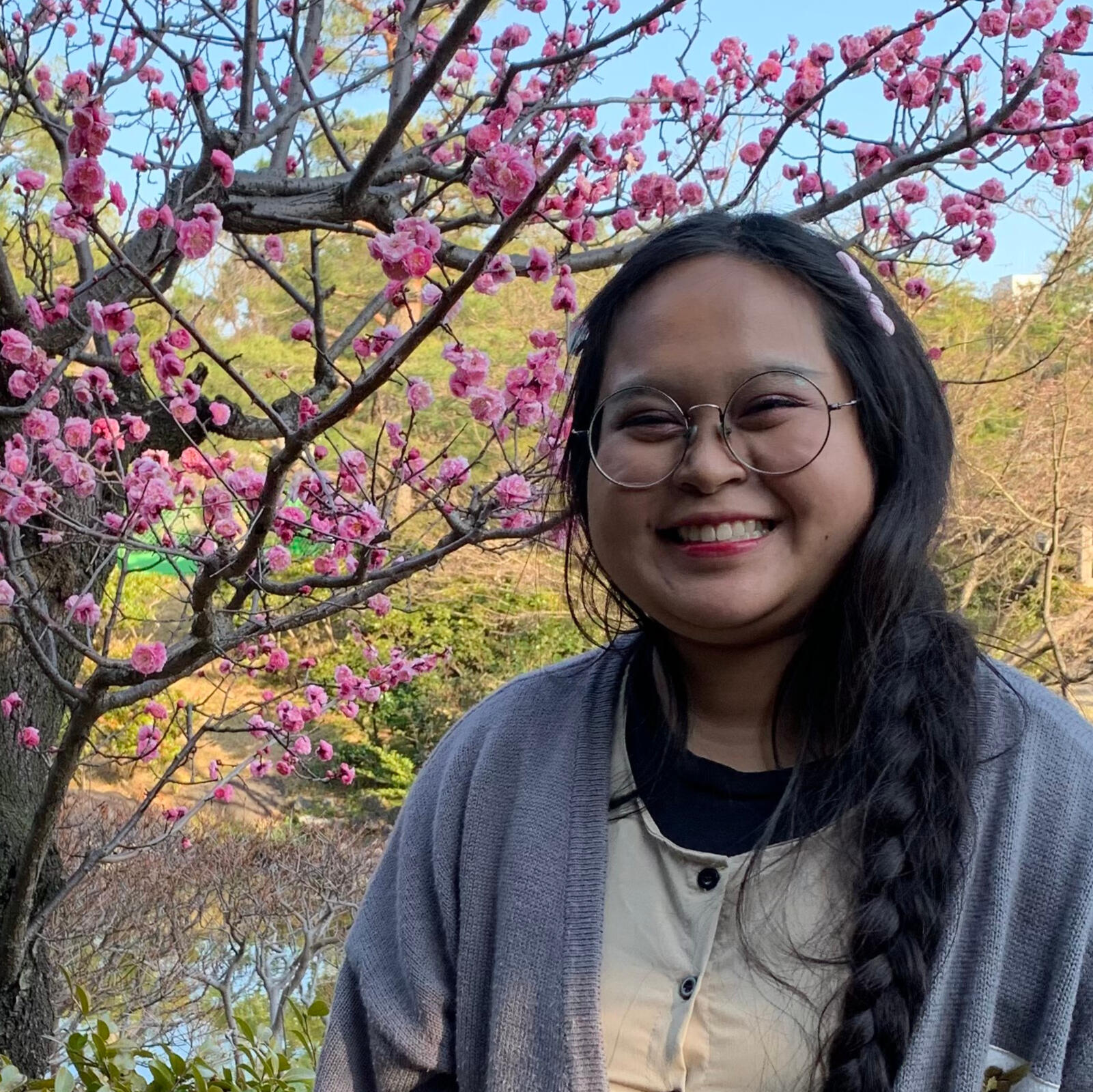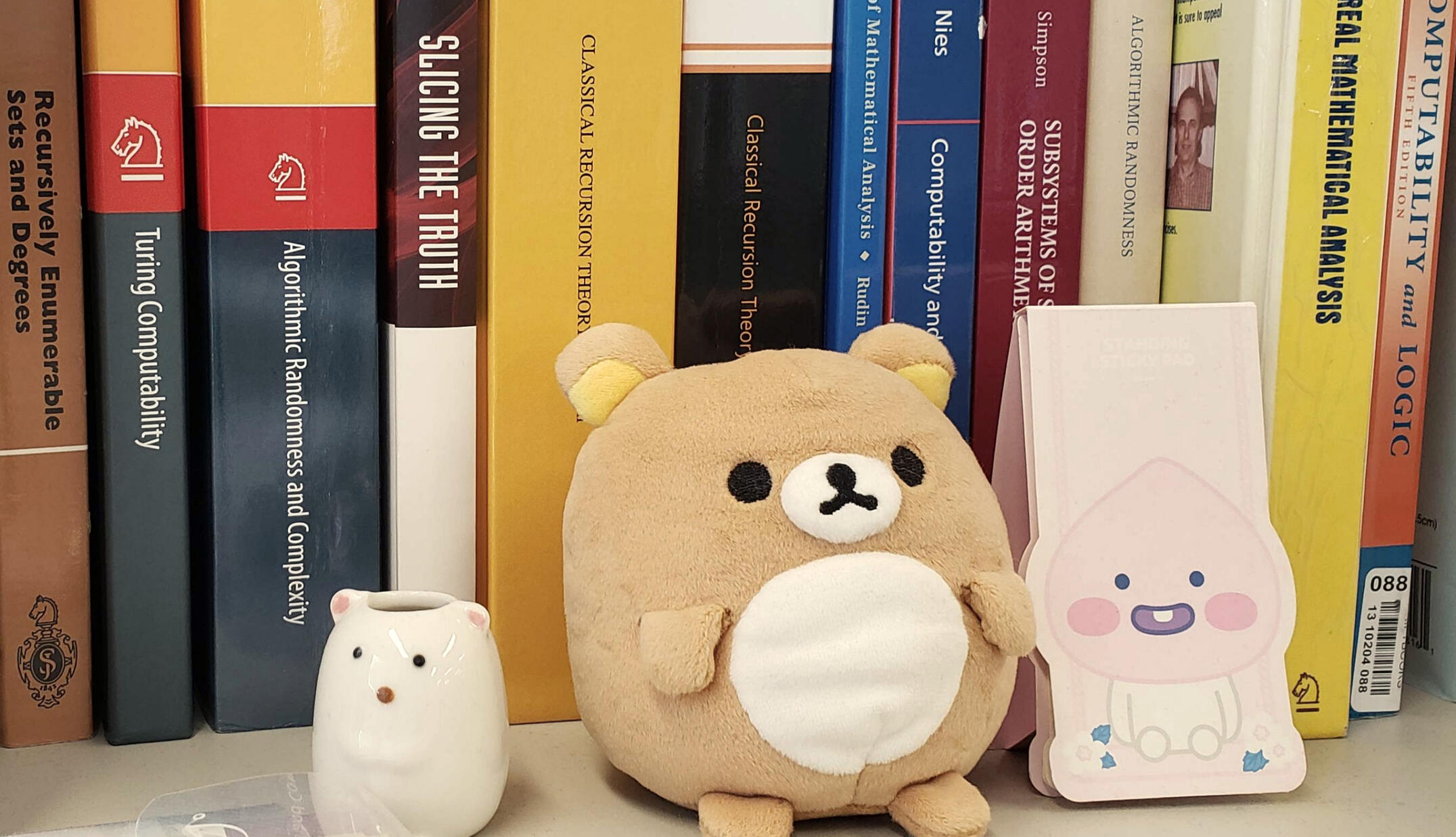Java Darleen Villano
I'm Java, and I work in computability theory, a branch of mathematical logic.I am currently a Postdoctoral Fellow at the University of Toronto. Previously, I was mentored by Reed Solomon and Damir Dzhafarov at the University of Connecticut.My email is java (dot) villano (at) utoronto (dot) ca.Note: My entire first name is Java Darleen, but please feel free to just call me Java.

About me
I was born in the Philippines and moved to California when I was young. I grew up in California, and did most of my school there in the public school system before moving to Connecticut for my PhD.I was recently in St. Louis, MO at the AMS Fall Central Sectional Meeting.Outside of math, some of my hobbies include makeup, fashion, collecting cute items (stationary, plushies, etc.), and playing video games.
CV
My CV is available here.---If you were wondering, I use the RenderCV sb2nov Theme template, which can be imported easily into an Overleaf project.

Publications and preprints
Publications
Computable categoricity relative to a c.e. degree
Notre Dame Journal of Formal Logic, vol. 66(4), 491-512, 2025.Normality, relativization, and randomness
with W. Calvert, E. Gruner, E. Mayordomo, and D. Turetsky.
Theory of Computing Systems, vol. 69, 26, 2025.The Ginsburg-Sands theorem and computability theory
with H. Benham, A. DeLapo, D. Dzhafarov, and R. Solomon.
Advances in Mathematics, vol. 444, 109618, 2024.
Preprints
Extensions of categoricity relative to a degree (submitted)
PhD Thesis
Slides from talks
This is where I will put links to my slides from talks I've given at conferences or in seminars. Please note there may be some minor errors in some of them.
Here are my slides for my Ph.D. Oral/General Exam, taken in Fall 2022. If you are currently a UCONN graduate student, please be aware that I took this exam before they clearly established the official guidelines for oral/general exams, so the content of these slides is more than is expected.
Here are my slides from dissertation defense from Spring 2025. They largely contain the same content covered in previous talks I've given on my work on categoricity relative to a degree.
Here are my slides from my talk at the Reverse Mathematics workshop at ESI in August 2025.
---If you were wondering, I use the Metropolis Beamer Theme for my beamer talks. This theme can be used in Overleaf.
Teaching
For Fall 2025 and Winter 2026, I will be a course instructor for MAT133 at the University of Toronto. My office hours are Mondays and Fridays from 2-3PM. The location is available through the course's Quercus page.Below is a list of my previous teaching posts (as course instructor) as a graduate student at the University of Connecticut.
Fall 2024 — Instructor, Math 1071Q (Calculus for Business and Economics)
Spring 2024 — Instructor, Math 1071Q (Calculus for Business and Economics)
Fall 2023 — Instructor, Math 1071Q (Calculus for Business and Economics)
Spring 2023 — Instructor, Math 1071Q (Calculus for Business and Economics)